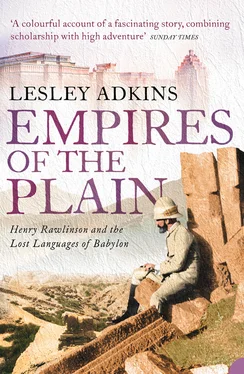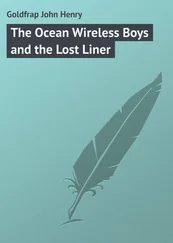On his arrival at Tehran, Rawlinson learned that Muhammed Shah had already left with his army for the planned expedition to the north-east. Because the British were alarmed that the Shah was being urged by the Russians to resume their attack on Herat, just over the border in Afghanistan, the British Envoy at Tehran, John McNeill, had prevented any of the British detachment from accompanying the Shah. Known as the ‘Gateway to Afghanistan’, Herat was also a gateway to India, and there was fear that its capture would enable the Russians to expand their influence throughout western Afghanistan and threaten British interests in neighbouring India.
In the eighteenth century, the Afghan Empire extended into parts of modern-day Iran, Pakistan and India – including Kashmir, Punjab, Baluchistan and Sind. Ruled by the Sadozai dynasty, this powerful empire controlled trade routes between Persia, India, Turkestan and central Asia, but by the early nineteenth century the empire had shrunk and fragmented through civil war into several independent regions. When Muhammed Shah was planning to capture Herat, that city was still under the Sadozai ruler Shah Kamran, while Muhammedzai rulers had seized control elsewhere, with Dost Mohammed Khan at Kabul and three half-brothers (the ‘Dil’ brothers) at Kandahar. At the same time that Rawlinson was ordered to the royal camp by the Shah of Persia, Lord Auckland, the Governor-General of India, had sent a mission to Kabul under Captain Alexander Burnes in an attempt to persuade Dost Mohammed to act in the British interest. A few years older than Rawlinson, Burnes was similar in many ways, having entered the East India Company army as a cadet at Bombay at the age of sixteen, with an enthusiasm and mastery of Hindustani, Persian and Arabic that enabled his career to progress rapidly. With the British involved with both Persia and Afghanistan, a complex situation was developing.
As Russian influence in Persian affairs was suspected, McNeill found it useful to allow Rawlinson to catch up with the Shah, as originally directed, and so he rode night and day on virtually unserviceable post-horses. After a week, on 8 October 1837, Rawlinson stumbled across the first evidence of a Russian connection with the Shah of Persia and with Dost Mohammed at Kabul: ‘Our whole party were pretty well knocked up; and in the dark, between sleeping and waking, we managed to lose the road. As morning dawned, we found ourselves wandering about on the broken plain … and shortly afterwards we perceived that we were close to another party of horsemen … I was not anxious to accost these strangers, but on cantering past them, I saw, to my astonishment, men in Cossack dresses … I thought it my duty, therefore, to try and unravel the mystery. Following the party, I tracked them for some distance along the high road, and then found that they had turned off to a gorge in the hills. There at length I came upon the group seated at breakfast by the side of a clear, sparkling rivulet … I addressed him [the officer] in French – the general language of communication between Europeans in the East – but he shook his head … All I could find out was, that he was a bona fide Russian officer, carrying presents from the Emperor [Tsar Nicholas I] to Mohammed Shah.’ 1
That evening Rawlinson met up with the Shah in his new camp close to the Afghan border. Rawlinson was completely exonerated for the dispute with Manuchar Khan, and the Shah appointed him to the post of Custodian of the Arsenal at Tehran, with responsibility for training new recruits. On mentioning that the Russian officer was bringing him presents, the Shah exclaimed: ‘Bringing presents to me! Why, I have nothing to do with him; he is sent direct from the Emperor to Dost Muhammed of Cabul, and I am merely asked to help him on his journey.’ 2 Two days later, the Russians turned up at the camp, and the officer Rawlinson had met on the road was introduced as Captain Vitkievitch, who now managed to converse in fluent French. In order to warn McNeill of the ominous mission of the Russians to Kabul, which would prove an even greater threat to India than the capture of Herat, Rawlinson returned to Tehran a few days later in what became a famous epic ride of 750 miles accomplished in 150 consecutive hours. His discoveries would precipitate the first Anglo-Afghan War.
At the end of the year Vitkievitch reached Kabul only to find that Burnes had for the last few weeks been in talks with Dost Mohammed. Three years earlier the Sikh army of the Maharajah Ranjit Singh had captured the city of Peshawar, incorporating it into his Punjab Empire. He now threatened to march up the Khyber Pass and take Kabul, so Dost Mohammed wanted the support of the British to regain Peshawar and also to prevent his half-brothers at Kandahar entering into an alliance with the Shah of Persia, who had begun to besiege Herat in November and was promising them that city in return for their support. Because Vitkievitch was also offering Dost Mohammed financial aid to regain Peshawar, Burnes advised the British government that they should do everything possible to assist Dost Mohammed in Afghanistan in order to keep the Russians at bay, while McNeill in Tehran largely supported these views, believing that a united Afghanistan would be better security against Persia and Russia.
Newly promoted to the rank of Major, Rawlinson was now involved with duties at the Arsenal at Tehran, but the task was not running smoothly. When recalled from Kermanshah by the Shah, Rawlinson had sent a copy of the order to his commanding officer, Lieutenant-Colonel Benjamin Shee, who had replaced Lindesay-Bethune the year before. On Rawlinson’s return to Tehran from the royal camp in late October, he found a letter from Shee asking for an explanation of his activities in Kermanshah over the last few months. In the ensuing exchange of correspondence, Shee accused Rawlinson of wrong-doing and disobedience, and objected especially to his appointment at the Arsenal. Rawlinson was furious, and on 10 January 1838 Shee informed him that ‘the whole of this correspondence will form the subject of my next Report to India’. 3 It must have been very satisfying to receive notification from Shee on 16 February that: ‘I have the honor to send you a Royal Firman transmitted to me by the Military Secretary of Her Britannic Majesty’s Embassy at the Court of Persia – appointing you to the superintendence of the Arsenal and to drill recruits in Tahran.’ 4
Rawlinson’s duties were nevertheless not onerous, leaving him much time for studying. His first task was to compose a formal account of his Zohab to Susa expedition, which was published by the Royal Geographical Society at London in their journal for 1839. He also began to look at cuneiform again. Although he had copies of far more inscriptions than any other researcher, he had no access to the most recent research: ‘I was still under the impression that Cuneiform discovery in Europe was in the same imperfect state in which it had been left at the period of Saint Martin’s decease [in 1832].’ 5 Without full knowledge of what other scholars had subsequently done, Rawlinson was working in a vacuum, but he did succeed in translating several paragraphs of the Bisitun inscription. His method of working was to transcribe the Old Persian signs into Roman characters, and then translate this version into English.
On 1 January 1838, at the age of twenty-seven, Rawlinson sent the translation of the first two paragraphs of Bisitun to the Royal Asiatic Society in London, with an accompanying letter in which he explained: ‘I avail myself of the kindness of my friend Mr McNeill [the Envoy] in giving me a note of introduction to you to open a correspondence on the subject of some very interesting researches in which I am now engaged in this country and the results of which I am anxious to communicate to the world thro the Journal of the Royal Asiatic Society. On my arrival in Persia about four years ago, I applied myself with diligence to the study of the history, geography, literature and antiquities of the country. The latter field of research as being the least cultivated I found possessed of the most interest, and at an early stage of my enquiry, I could not of course but recognise the great importance of the Arrow headed inscriptions, the most ancient historical records that we possess in Persia … If you consider the subject of sufficient interest to be laid before the Society in its present incomplete state, I shall have much pleasure, when I receive your answer, in forwarding a statement of my researches as far as at the time they may extend. I anticipate the most extraordinary results, as far as the elucidation of ancient history is concerned from the interpretation of these inscriptions.’ 6
Читать дальше












